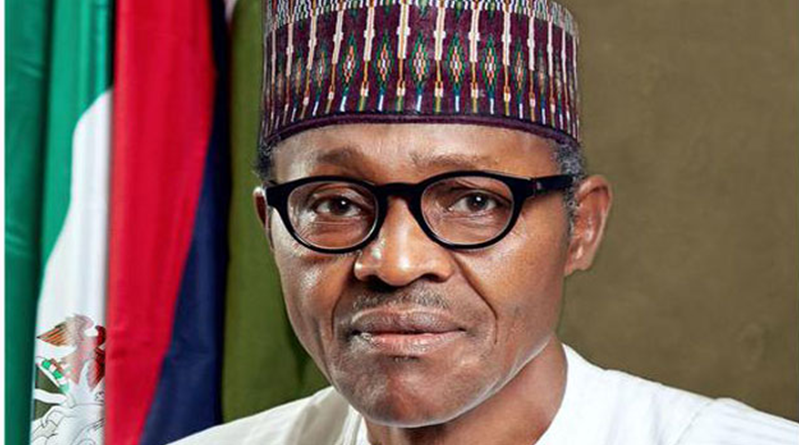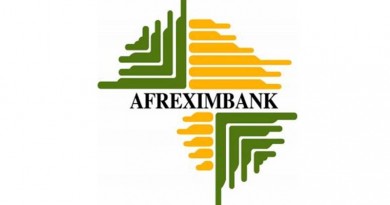President Buhari Signs 2019 Budget into Law as Analysts Call for Efficient Execution
Following the signing of the 2019 budget into law yesterday by President Muhammadu Buhari, analysts have advised him to ensure proper implementation to stimulate economic activities.
However, the president has warned that the adjustments made to the budget by the National Assembly would make its implementation difficult, particularly in accordance with the provisions of the Economic Recovery and Growth Plan (ERGP).
While signing the 2019 Appropriation Bill into law, the president promised to push for a review of the document by the next National Assembly.
The president who signed the budget in his office in the State House Abuja, said the budget of N8.92 trillion passed by the National Assembly was N90 billion higher than the N8.83 trillion proposal he presented to the parliament on December 19, 2018.
According to him, National Assembly members reduced some of the proposals he made in the budget and simultaneously increased others, including introducing fresh allocations into the budget.
The president said the adjustments by the National Assembly would make implementation of the budget difficult, particularly in accordance with the provisions of the ERGP.
However, he said even though he had opted to sign the budget, he would yet engage the leadership of the Ninth National Assembly to review the document when it resumes in June.
However, the president thanked the members of the National Assembly for their efforts in getting the document passed, recalling that the 2019 budget was christened budget of continuity, with a view to moving the country forward and fostering the policy of inclusiveness, diversified and sustainable growth.
He said he would ensure the improvement of the budget process with a view to speeding up budget consideration and consequently return the country to the January to December budget cycle.
He said: “You will all recall that in December 2018, I presented our 2019 budget proposal with the theme ‘Budget of Continuity.’ Our goal was to use this budget to move the economy further on the path of inclusive, diversified and sustainable growth.
“Back then, I proposed a total expenditure of N8.83 trillion to the National Assembly for appropriation targeting strategic and impactful projects and initiatives.
“However, the 2019 Budget I will be signing into law today provides for aggregate expenditures of N8.92 trillion. This is an increase of N90.33 billion over our submission.
“This increase reflects changes introduced by the National Assembly. In some areas, expenses we proposed were reduced; while in other areas they were increased. There were also certain areas where new additions were introduced into the budget. More details of the approved budget will be provided by the Honourable Minister of Budget and National Planning.
“Of course, some of these changes will adversely impact our programmes making it difficult for us to achieve the objectives of the Economic Recovery and Growth Plan (ERGP).
“Although I will be signing this bill, it is my intention to continue to engage the National Assembly to ensure we deliver on our promises. I will therefore be engaging with the leadership of the Ninth National Assembly, as soon as they emerge, to address some of our concerns with this Budget.
“We will also look at how to improve the budget process so that, amongst other things, we can speed up budget consideration processes and return the country to the January to December fiscal year timetable.”
Dogara Reacts to Buhari’s Complaint
Reacting to the president’s complaint on the handling of the budget by the National Assembly, Speaker of the House of Representatives, Hon. Yakubu Dogara, said there was nowhere in the world where the executive and legislature agree on the budget.
Dogara responded as Senate President Bukola Saraki, who ought to have done so as the leader of the National Assembly, arrived late at the signing ceremony from another engagement.
According to him, it is the responsibility of the executive to make budget proposals while on the other hand, it is the responsibility of the legislature to appropriate in accordance with priorities as representatives of the people.
He said instead of resorting to name calling, it would be more important to reach a consensus aimed at promoting progress.
“Well, I have told you that the job of the National Assembly is not to agree with the executive, I don’t think any congress in the world does that.
“By the constitution and design, the executive informs us what they intend to do and the representatives of the people in the National Assembly decides what is priority since they represent the people.
“It is going to be a knotty area but we will continue to define the relationship between the executive and the legislature. Whether it is Britain or US, wherever it is, there is always a strain on this issue of budget because it deals with high stakes distributional issues as to who get what, which part of Nigeria gets this and that, so it will continually be an issue.
“We should not be defined by those issues rather we should define those issues by forming consensus that is the part to progress and we will continue to do that,” Dogara said.
Earlier, Minister of Budget and National Planning, Senator Udo Udoma, had described the document as a collective endeavour between the executive and the National Assembly.
The 2019 budget is made up of N4.65 trillion recurrent expenditure, N2.94 trillion capital expenditure, N2.25 trillion for debt servicing and N502.58 billion statutory transfer.
Among those who witnessed the signing of the budget were Vice-President Yemi Osinbajo; Dogara; Deputy Senate President, Senator Ike Ekweremadu; Senate Chief Whip, Prof. Sola Adeyeye; Deputy Senate Leader, Senator Bala Ibn Na’Allah; Chairman of the Senate Appropriation Committee, Senator Danjuma Goje and Chairman, Senate Committee on Finance, Senator John Owan Enoh.
Analysts Seek Implementation to Stimulate Economic Activities
Shortly after the president signed the budget into law, analysts, in separate interviews with THISDAY, urged him to speedily implement the budget by not delaying the appointment of members of the Federal Executive Council who will oversee the implementation.
They said this was necessary to address the rising incidence of poverty and unemployment in the country.
The Managing Director of Kairos Capital, Sam Chidoka, said there was need for the government to pursue expansionary economic policies to reflate the economy.
“As the budget has been passed, they need to make sure that the capital component of the budget is released as and when due, so that it can stimulate growth in the economy.
“The budget has a benchmark of three per cent growth; in the first quarter we did only two per cent and that means that for every other quarter we must be growing at over three per cent to meet that.
“But to achieve that, we really need to expand the economy and we need to allow the private sector through policies to begin to fit into the system. So, you can’t be saying verbally you want to reflate the economy and by policies you are actually contracting the economy, it can’t work,” he said.
Also, the Chief Economist of the Securities and Exchange Commission (SEC), Prof. Uche Uwaleke, urged the president who will be inaugurated for another term of four years tomorrow, to hit the ground running by implementing the budget.
He said: “One of the ways is to ensure that his cabinet is quickly constituted. That is because if there is a delay in putting together the cabinet, that would affect the implementation of the budget.
“But I am happy that the disposition of the president today is not to delay in appointing his cabinet members.
“I believe he wants to leave a legacy and I am sure he has identified capable hands to help him do that. One of the good things he has done in my view, in recent time, was the reappointment of the Central Bank of Nigeria Governor.
“That is expected to ensure continuity in monetary policies.”
He stressed the need to focus more on the capital component of the budget, just as he advised the federal government to be conscious of the country’s debt burden in its attempt to finance the budget.
“So, we should be careful when we are borrowing, by ensuring that whatever we borrow is tied to infrastructure and capital projects,” he added.




